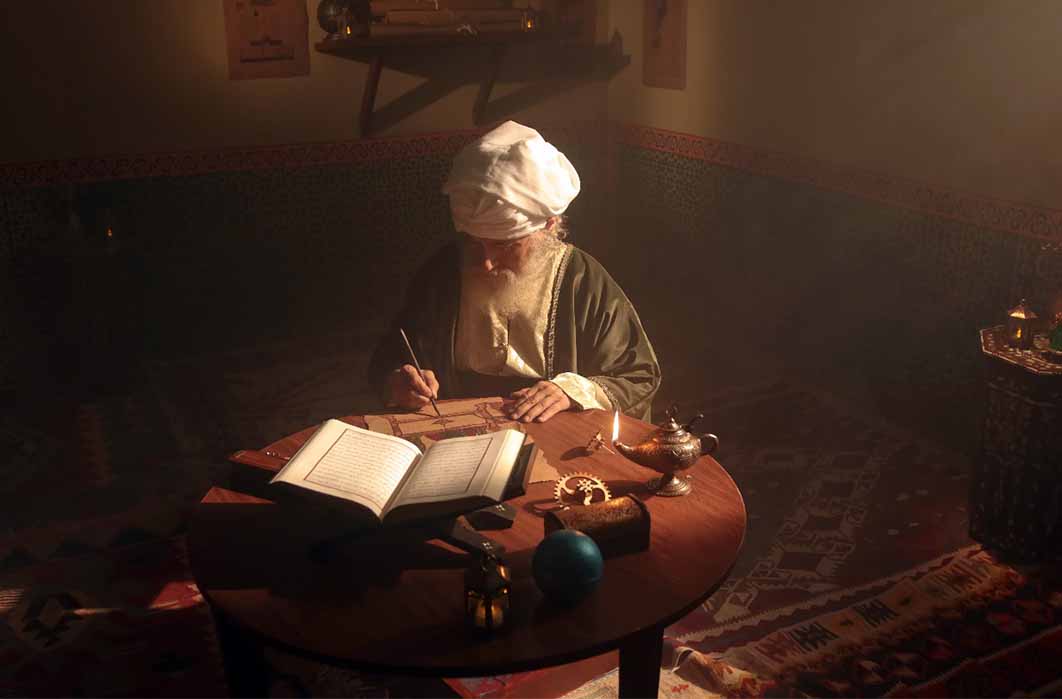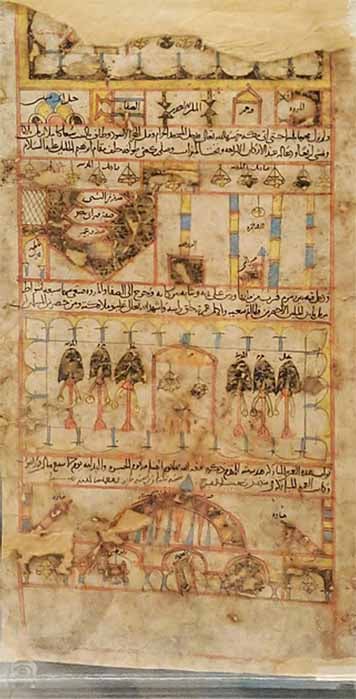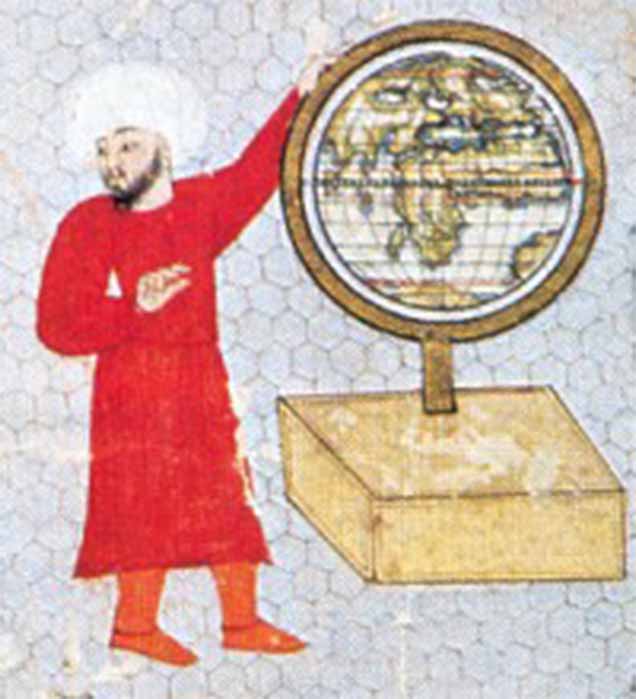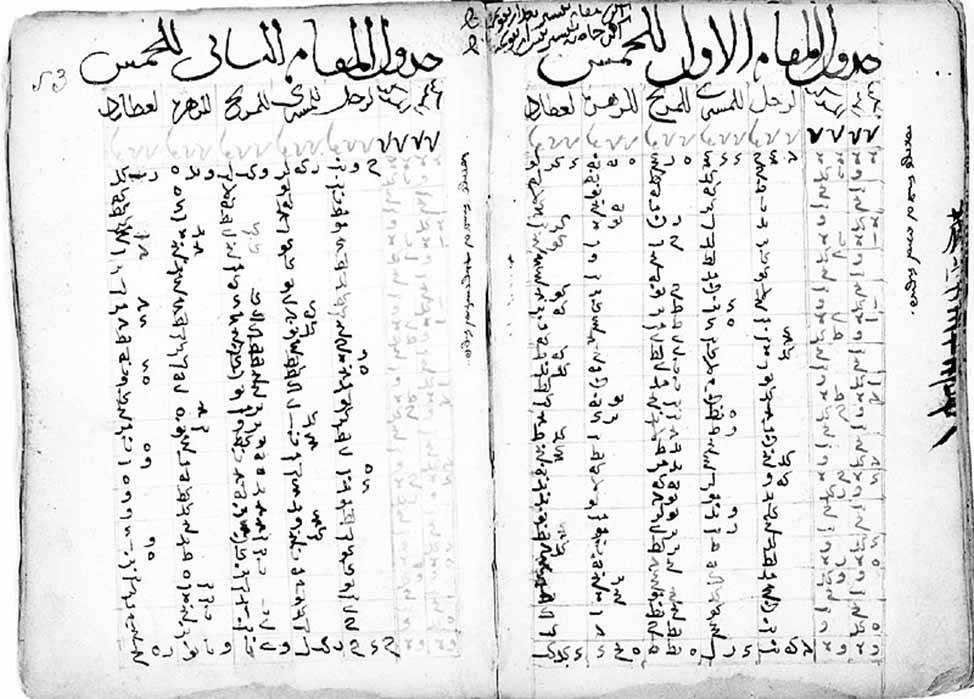
The Golden Age Of Islamic Astronomers
Astronomical understanding, accurate calendars and knowledge of exact geographic latitudes and longitudes were essential for all Islamic cities and towns. This body of astronomical knowledge was not accumulated for abstract scientific advancement but mainly for religious obligations. Three of the Five Pillars of Islam require astronomically precise information: to determine accurate hours for the call to prayer, the time of sunrise and sunset for fasting during Ramadan, and for tracking the phases of the moon that marked the start of a new lunar month. The exact directions were necessary especially for the Hajj, the journey to Mecca for every able Muslim. The extended journeys through desert sands by long-stretching caravans that transported precious cloth, carpets and exotic spices also required knowledge of the star positions and their annual cycles.

A Hajj certificate dated 602 AH /1205 AD (Mustafa-trit20/CC BY-SA 4.0)
Arabic astronomers were continually active in studying the phenomena of the heavens and in improving and refining their instruments. Just as Christian communities required accurate astronomical records for determining religious holidays, for orienting churches toward the east and for determining proper times for the monastic daily prayer, similar needs confronted the Muslim communities.
Astronomical knowledge was essential for mosques be oriented toward the Ka’aba, the sacred shrine within the holiest city. Determining a precise alignment between a mosque and Mecca required the development of mathematical and spherical geography and accurate calculations of latitude and longitude which was difficult until modern times. The qibla problem (the holy niche directed toward Mecca) had to be addressed every time a new mosque was built anywhere in the wide-spread Islamic world. Many mosques engaged a full-time astronomer, called a muqqawit, to keep their lunar calendars accurate. They had to have methods for recording eclipses, comets and stellar positions. All of these essential activities motivated increasingly sophisticated and advanced astronomical studies and observations.

Miniature of Islamic Astronomer (CC BY-SA 4.0)
Establishing Islamic Arabic Science Centers
Science arose in Arabic-speaking countries shortly after Islam was established. From the ninth to the 15th century, Islamic scientists working in the Arabic language, in a region stretching from Islamic Spain across North Africa and the Middle East to India, were dominant in worldwide scientific endeavors. Leaders of the early Islamic empire, inspired by the Qur’an’s dictum to study all of God’s works, appointed scholars to collect Persian, Sanskrit and especially Greek texts in order to translate them into Arabic for study and application. Under the sponsorship of these enlightened rulers, intellectual centers were established, mainly in the cities of present-day Iraq, especially Baghdad, to encourage the collection and analysis of these early scientific texts.
- Ancient Transmissions Of The History Of The Constellations
- The Life and Times of Rumi: Sufism and the Golden Age of Islam
- Who were the Colorful, Powerful, Influential, Educated Women of Ancient Islam?
Thus a dominant factor in the transmission of astronomical and astrological knowledge in the later Middle Ages can be attributed to the work of scientists and astronomers from the Islamic World through Arabic manuscripts, along with their diagrams and illustrations. These enlightened writings of Arabic scientists had a profound effect on the advancement of knowledge as their achievements were especially noteworthy not only in astronomy, but also in mathematics, chemistry, optics, and medicine. They supplied the raw material for Europe’s intellectual renaissance.





